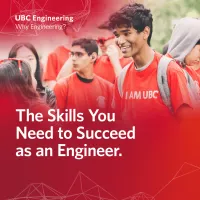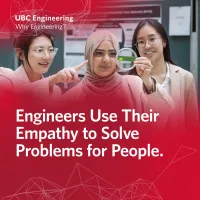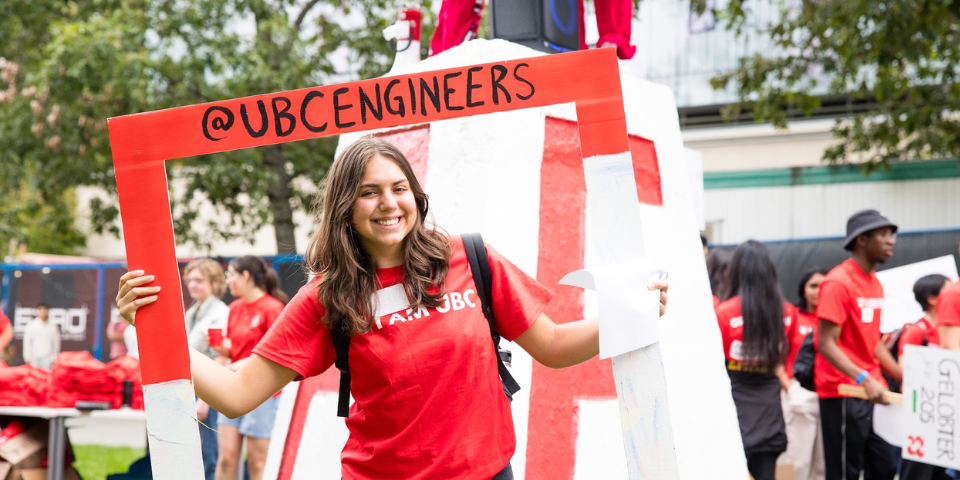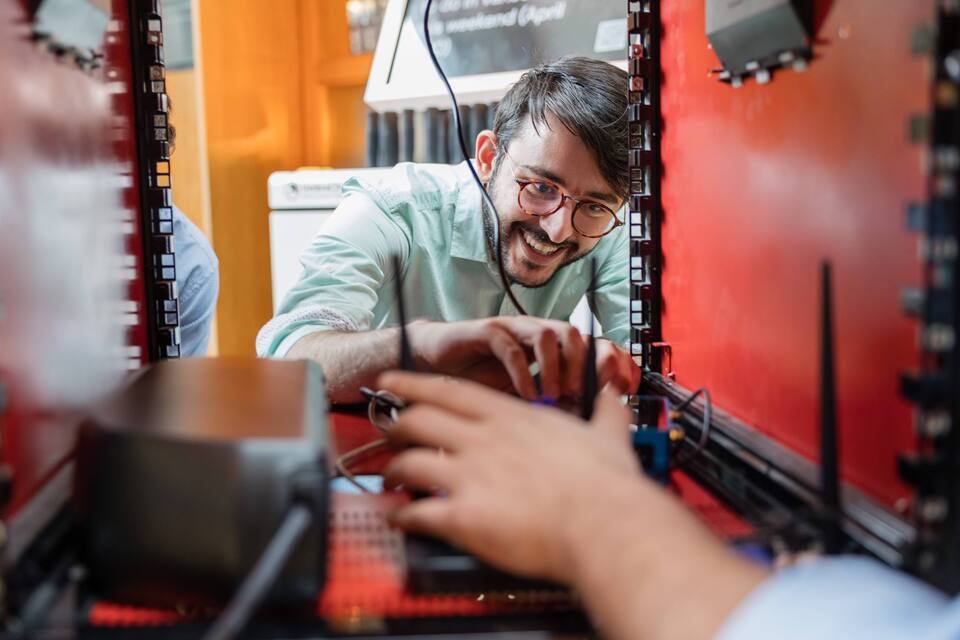
Engineering is many things – a way of thinking, solving problems, designing and making useful products and processes, and having a positive impact on the world. It’s a well-paying profession that’s essential to all industries, from health care to energy generation, manufacturing to mining.
Just what is a profession?
Professions (like engineering, medicine, law, and accounting) are different from other careers. For one thing, they are regulated by external organizations that make sure their members have the knowledge and skills to work in that area and that they are following ethical guidelines and codes of practice.
The work that engineers do – whether that’s designing a water treatment plant, a biomedical device, a self-driving car, a satellite, a new way to capture carbon – must be reliable and safe.
Just like doctors must make sure that their treatments “do no harm,” so to must engineers make sure that the innovations do not negatively impact the environment or human health.

Professionals must also demonstrate that they have the specialized knowledge and extensive training required to do the work that they do. (After all, you wouldn’t want someone calling themselves a dentist or a surgeon if they hadn’t completed years of education and training in that field.)
One of the many great things about engineering compared to other professions is that it does not require you to pursue additional post-secondary education after you complete your undergraduate degree.
You can start working in engineering at a well-paying job right after you graduate – no need to wait until you are in your late 20s before embarking on your career!
What it means to be a professional
UBC’s holistic approach to engineering education means that you will gain all the skills you’ll need to succeed as a professional engineer, including strong communication skills, an understanding of what it means to be a professional, and an awareness of your obligations and responsibilities to work in a sustainable way that upholds safety for people and the environment.
Developing your communication skills
Being able to communicate effectively is essential. “Almost every employer or industry representative that we talk to says that if there’s one thing they are looking for, it’s engineering grads with strong communication skills,” says Professor Jaeger.
Communication skills encompass a lot of different areas, including the ability to communicate with other members of a project team – how to share information, challenge assumptions, negotiate conflict and the like. Good communicators are able to talk about technical concepts with both technical and non-technical people. They are also confident sharing their ideas in writing – whether that’s a project report, business email or proposal for a new idea.
You’ll develop these skills starting in your first-year engineering design courses.
For some projects, you’ll be put in teams where you’ll work on a project, often for a real-world client, like designing an assistive device for someone with a disability or coming up with an innovation to support firefighters. You’ll learn how to communicate effectively in groups.
You might also be asked to write a technical memo about your project, or put together a poster explaining your design process or give a presentation to a larger audience.

Discover student-centred learning at UBC Okanagan
In later years in your degree, you will also be required to take a technical communication course tailored to your specific engineering, giving you more opportunities to practice these skills.
If you talk to students or alumni, a lot of them will tell you that their ability to communicate well proved incredibly useful in getting co-op jobs, succeeding at those jobs, and in their early-career development.
“There are many technical aspects to engineering, but as you get into your upper-level classes you also start to learn the value of communication and how important it is be able to clearly communicate technical ideas,” says Taylor Chisolm, who specialized in Geological Engineering.
“As an engineer, you are interacting with so many groups of people who will have varying degrees of technical knowledge. Being able to understand and clearly explain engineering concepts is such a valuable skill.”
Bringing it all together
When you decide to work in a professional field, like engineering, you are choosing more than an in-demand and well-paying job where you get to use your skills and passions to do interesting things.
You are also choosing to be a professional, which means you are taking on significant responsibility to ensure that your work is not harming people or the environment.
At UBC, we offer the holistic education required to be responsible professional where you will be making a positive difference in the world. Check out some of the profiles of our alumni to see what we mean!










